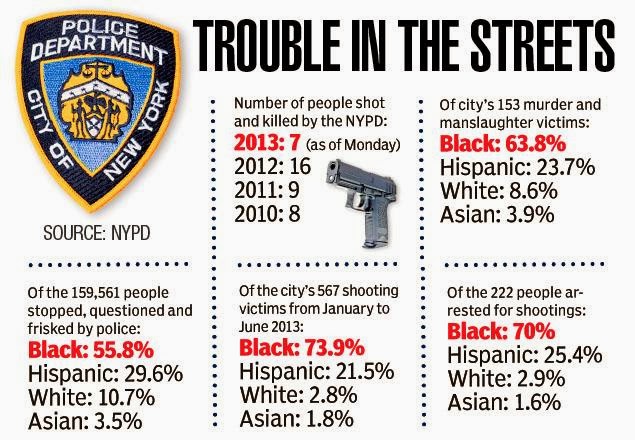#1) Reason more are stopped. Statistically they commit more crime so they are going to be stopped more frequently. I am going to have my wife's car serviced more frequently than my own because she drives more.
The behavior you are describing is explicitly prejudicial in the context of a traffic stop. It would be like if I argued for a stop and frisk program in NYC that targeted white men in suits in Manhattan on the basis that people belonging to that demographic commit more financial crimes than people belonging to other demographics. Or even more broadly, what if the police decided to randomly stop men they see driving since men commit the majority of violent crimes? After being stopped a few times, I imagine you would recognize the injustice of this argument. A traffic stop ought to be predicated on an observation of a traffic violation or some other minimal probable cause, and that's the point: black people are targeted on the basis of prejudicial arguments like the one you just made while others are not.
And it's not just traffic stops, there are also problematic racial disparities in the
use of force, in the rates at which unarmed black men
are shot by the police, as well as in other aspects of the criminal justice system, from bail decisions to plea-bargaining, jury selection, and sentencing (cf.
Race and Crime vol. 4, 2016, I can cite specific passages if you like, referencing a variety of research over the last 20 years, or a good introduction to some common issues is the
DOJ report on Ferguson).
#2) White folks aren't the ones with drugs in their car. LOL. Whites get arrested for meth very frequently and that holds the same penalty as blacks with crack.
Whites use and sell drugs at similar (or higher) rates than blacks, but
blacks are more often arrested for drug use. Up until very recently there were also
racial disparities in sentencing for drug related crimes.
#3) NW. Easy. Historical wealth builds on itself. Grandparents pass to parents pass to kids and so on. If I get a free house or a house at a discount I get a leg up. I am a 2nd generation American so I didn't have that advantage. Whites originally colonized the US so of course they have more generational wealth.
#4) Assets. I have no idea where he gets this data from but he is incorrect unless he is saying that black families are poor savers or excessive spenders.
The discussion about
wealth and economic inequality between blacks and whites is really crucial to understanding some of the disparities in the criminal justice system, but the problem with your analysis is that you take it for granted that those disparities are the result of some neutral or otherwise innocent historical processes. But that's completely false, and also of course ignores that there are plenty of black folks in the US whose families have been here longer than many whites have.
But the bigger problem is that the wide disparities in income and wealth were explicitly created by racist policies over hundreds of years, many of which only ended within the last couple decades, while other (usually less overtly racist) policies continue. On this, I recommend the book
The Color of Law. Discrimination
in employment and education; Redlining, contract selling, block-busting, and other discriminatory housing practices (including explicitly racist federal loan policies, again cf.
The Color of Law) by which the creation of concentrated poverty in segregated areas was accomplished; policies of
mass incarceration; the previously mentioned disparities in law enforcement; all of these have contributed to the present levels of economic inequality which people like you use to justify their racial prejudices. But the game was always rigged, and you can't systematically steal the wealth of a people for hundreds of years and then reasonably expect those wounds to heal by themselves.
Basically, you said it all when you said "Whites originally colonized the US so of course they have more generational wealth," you just don't seem to realize what was actually involved in that colonization, and not just 300 years ago but in the 20th century.


